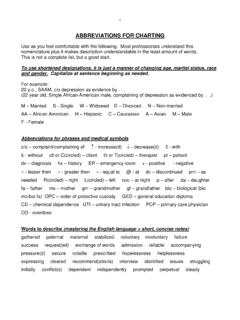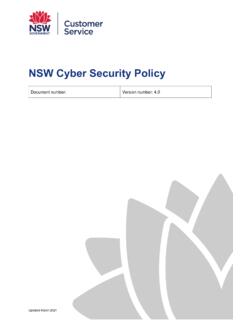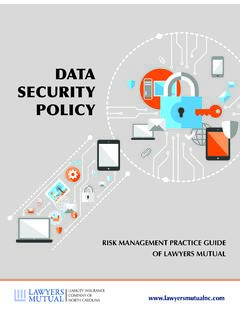Transcription of Sample Computer Network Security Policy
1 Approved 12/14/11 last updated September 14, 2012 Network PROTECTION INTERNAL USE ONLY Page 1 Network Protection and Inf ormation Security Policy Purpose .. 1 Scope .. 1 Policy .. 1 Responsibilities .. 2 System Access Control .. 2 System Privileges .. 4 Establishment Of Access Paths .. 6 Computer Viruses, Worms, And Trojan Horses .. 7 Data And Program 8 Portable Computers .. 8 Remote Printing .. 8 Privacy .. 9 Logs And Other Systems Security Tools .. 9 Handling Network Security information ..10 information Security ..10 Physical Security Of Computer And Communications Gear ..11 Exceptions ..12 Violations ..12 Terms and Definitions.
2 12 Related Documents ..15 PURPOSE The purpose of this Policy is to establish administrative direction, procedural requirements, and technical guidance to ensure the appropriate protection of Texas Wesleyan information handled by Computer networks. SCOPE This Policy applies to all who access Texas Wesleyan Computer networks. Throughout this Policy , the word user will be used to collectively refer to all such individuals. The Policy also applies to all Computer and data communication systems owned by or administered by Texas Wesleyan or its partners. Policy All information traveling over Texas Wesleyan Computer networks that has not been specifically identified as the property of other parties will be treated as though it is a Texas Wesleyan asset.
3 It is the Policy of Texas Wesleyan to prohibit unauthorized access, disclosure, duplication, modification, diversion, destruction, loss, misuse, or theft of this information . In addition, it is the Policy of Texas Wesleyan to protect information belonging to third parties that have been entrusted to Texas Wesleyan in a manner consistent with its sensitivity and in accordance with all applicable agreements. Approved 12/14/11 last updated September 14, 2012 Network PROTECTION INTERNAL USE ONLY Page 2 RESPONSIBILITIES The Chief information Officer (CIO) is responsible for establishing, maintaining, implementing, administering, and interpreting organization-wide information systems Security policies, standards, guidelines, and procedures.
4 While responsibility for information systems Security on a day-to-day basis is every employee s duty, specific guidance, direction, and authority for information systems Security is centralized for all of Texas Wesleyan in the information Technology department. This department will perform information systems risk assessments, prepare information systems Security action plans, evaluate information Security products, and perform other activities necessary to assure a secure information systems environment. The Security Manager (person in charge of physical Security and individual safety) is responsible for coordinating investigations into any alleged Computer or Network Security compromises, incidents, or problems with the IT Infrastructure Services director.
5 All compromises or potential compromises must be immediately reported to the information Technology department. The IT Infrastructure Services director is responsible for contacting the Security Manager. System administrators are responsible for acting as local information systems Security coordinators. These individuals are responsible for establishing appropriate user privileges, monitoring access control logs, and performing similar Security actions for the systems they administer. They also are responsible for reporting all suspicious Computer and Network - Security -related activities to the Security Manager. System administrators also implement the requirements of this and other information systems Security policies, standards, guidelines, and procedures.
6 In the event that a system is managed or owned by an external party, the department manager of the group leasing the services performs the activities of the system administrator. Directors and Deans are responsible for ensuring that appropriate Computer and communication system Security measures are observed in their areas. Besides allocating sufficient resources and staff time to meet the requirements of these policies, departmental managers are responsible for ensuring that all employee users are aware of Texas Wesleyan policies related to Computer and communication system Security . The Dean of Students is responsible for ensuring that appropriate Computer and communication system Security measures are observed by students.
7 The Dean is responsible for ensuring that all student users are aware of Texas Wesleyan policies related to Computer and communication system Security . Users are responsible for complying with this and all other Texas Wesleyan policies defining Computer and Network Security measures. Users also are responsible for bringing all known information Security vulnerabilities and violations that they notice to the attention of the information Technology department. SYSTEM ACCESS CONTROL End-User Passwords Texas Wesleyan has an obligation to effectively protect the intellectual property and personal and financial information entrusted to it by students, employees, partners and others.
8 Using passwords that are difficult to guess is key step toward effectively fulfilling that obligation. Approved 12/14/11 last updated September 14, 2012 Network PROTECTION INTERNAL USE ONLY Page 3 Any password used to access information stored and/or maintained by Texas Wesleyan must be at least 8 characters long, contain at least one uppercase letter and one number or special character. Passwords will expire annually - every 365 days. When a password expires or a change is required, users should create a new password that is not identical to the last three passwords previously employed. Passwords stored electronically may not be stored in readable form where unauthorized persons might discover them.
9 Passwords may not be written down and left in a place where unauthorized persons might discover them. Passwords may never be shared or revealed to anyone other than the authorized user. If a password is suspected of being disclosed or known to have been disclosed to anyone other than the authorized user, it should be changed immediately. Password System Set-Up All computers permanently or intermittently connected to Texas Wesleyan local area networks must have password access controls. If the computers contain confidential or protected information , an extended user authentication system approved by the information Technology department must be used.
10 Multi-user systems (servers) should employ user IDs and passwords unique to each user, and user privilege restriction mechanisms with privileges based on an individual s need to know. Network -connected, single-user systems must employ hardware or software controls approved by information Technology that prevent unauthorized access. All vendor-supplied default fixed passwords must be changed before any Computer or communications system is used in production. This Policy applies to passwords associated with end-user user IDs and passwords associated with privileged user IDs. Where systems software permits, the number of consecutive attempts to enter an incorrect password must be strictly limited.




